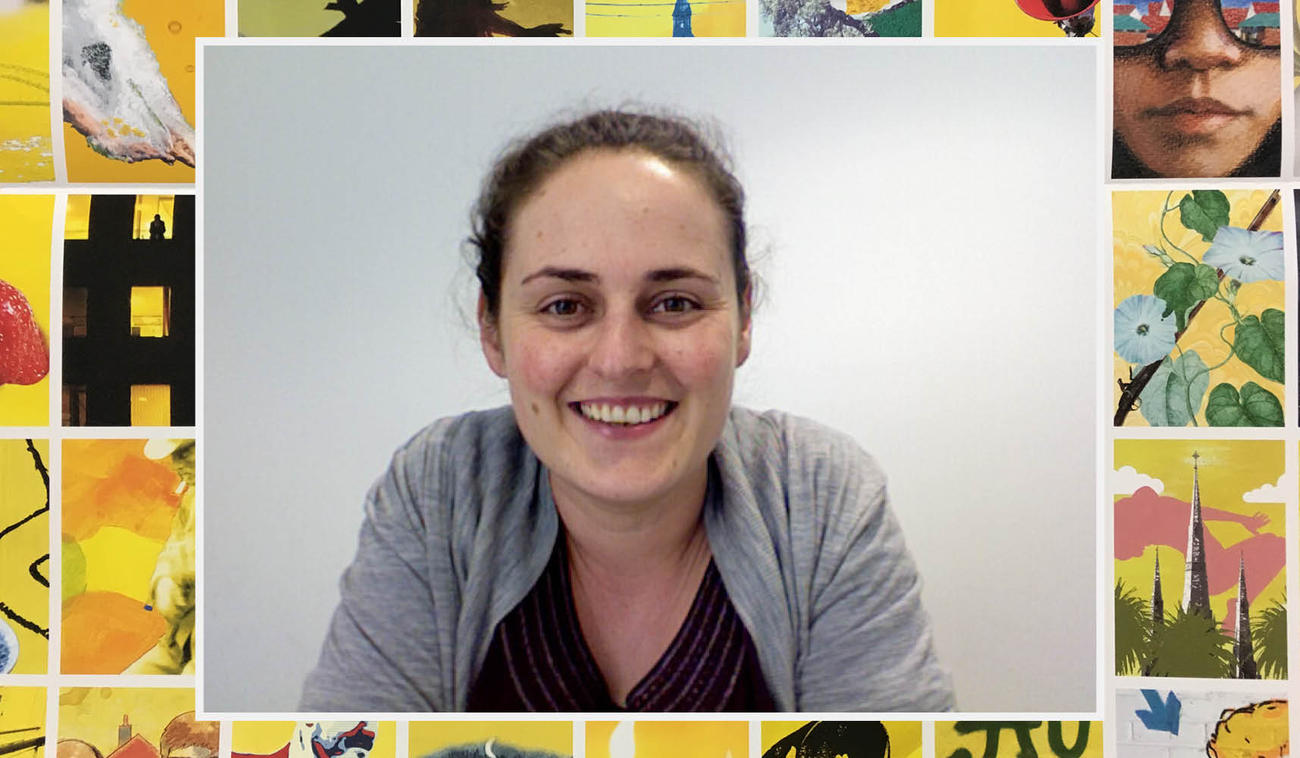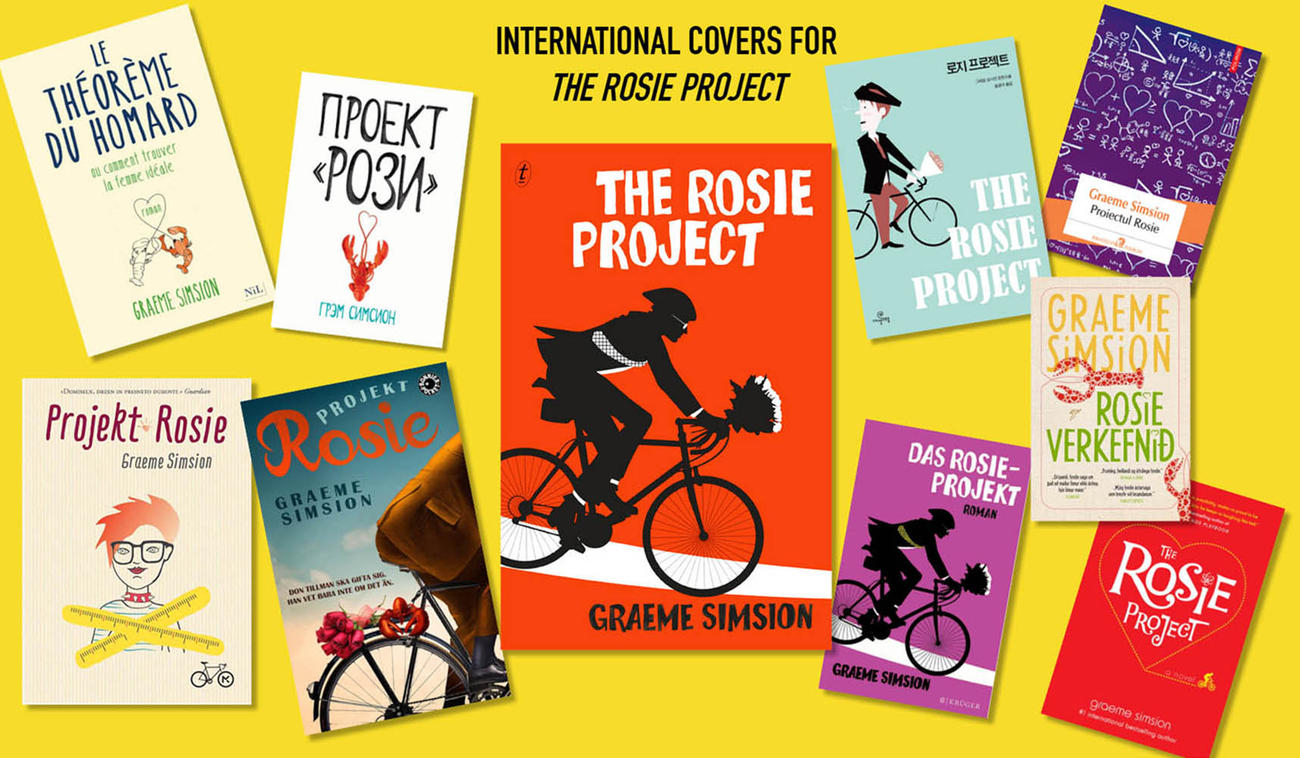
Anne Beilby has been with Text since she applied for the position of admin assistant way back in 2004. So she’s seen a thing or two around here.
We asked Anne to tell us about her role as rights manager as well as a bit about Text’s history and why all the bookstores in the north of Melbourne have correctly ordered books.
What was the book that got you hooked on reading?
There’s no one book but I’ve always been surrounded by books. My parents are big readers, there were always books throughout the house. My library card was constantly maxed out as a kid, and I did work experience – multiple times – at the library. I would beg to be driven to the coastal mobile library service on holidays, I wrote reviews for the school newsletters, I loved meeting the authors who came to school to talk to us students. I taught myself the Dewey Decimal system, and I have been known to audibly “tut tut” when I find books mis-shelved in shops and I often redo face out displays.
I sound like a right retail pain. It’s probably best I’m now tucked away in an office.
What was your first job at Text?
Thirteen years ago I joined Text as Michael Heyward’s assistant and to do general office administration, just as the company was moving into new premises. There were only eight of us at the time, half of whom still work here, but now we’re a team of 24 people. My role has changed, too. Now I’m the rights manager.
How did you get into publishing?
I’d been working in bookshops through my undergrad and post-grad studies and wanted to be more involved with books. I applied for an entry-level position at Text and I’ve never looked back.
What have been the biggest changes you’ve seen in publishing?
Less reliance on the fax machine? Getting a colour printer, one that also prints double sided? Scanning? Mail merge? More seriously, there’s less fear of ebooks now, and less fear of print books disappearing. Bookshops are still disappearing at an alarming rate, and let’s not get started on print coverage of the arts… but the written word and hard-copy books are still alive and well. A big and positive change is the rise of translated books available in English. It’s shameful that we as Australians don’t all speak at least one other language, but in the last few years I’ve noticed more authors being translated into English—so at least we have no excuse not to read authors from other countries.
What’s an average day like?
There’s a lot of admin. One of the biggest misconceptions is that we read all day. We would all love to spend our days reading, but we don’t have the time. I spend a lot of time negotiating contracts with local authors and agents, and international agents and publishers. I email with translators who may have questions about certain phrases or meanings and feelings the author was trying to convey. I might be reviewing international royalty statements for our authors or, on a good day, opening up international packages containing foreign editions of our books. It’s always interesting to see the different jackets the same book might receive from different countries. Each publisher wants to do the best for the author and for their market and that can mean very very different design approaches. It’s rare for a book to receive the same cover from publishers all over the world, but it’s also rare for a book to be retitled. If it is, it’s because our original title might not translate well into French, or Arabic, for example. So I might be discussing the proposed changes with an author and explaining the international publisher’s reasons for wanting to change it.

International Covers for THE ROSIE PROJECT by Graeme Simsion
I am part of our editorial team acquiring titles to publish on the Text list. I also pitch our titles, where we have rights, to international publishers, agents, film producers and literary scouts.
There’s never a set number of titles I’m working on. There’s always our frontlist—whether it’s titles we’re publishing in coming months or titles we’re not due to publish until next year or beyond. But sometimes it’s titles we published last year or some years ago. Good stories don’t necessarily date and there’s always the potential to find new readers in new markets.
What do you like best about working in rights?
It comes down to the privilege of sharing the books I love with other booklovers. Australian stories travel—the idea that one of our authors could end up translated and published in Finnish, or Japanese, Albanian or Turkish is so exciting. Our books are turned into feature films, TV mini-series, broadcast on radio, released as audio books and editions in large print.
Where is your favourite place to read?
I’ll happily read anywhere, at any time. But not on screen. I derive no enjoyment from reading on screen, and retain little.
Which Text book would you most like readers to (re)discover?
Hand Me Down World by Lloyd Jones. A brilliant portrayal of motherhood, love and loss. And each time I see Chong’s cover for our edition, it takes my breath away.
What advice would you give to someone wanting to work in publishing?
Read. Read as much as you can, as often as you can. Read outside your comfort zone, shop locally, get involved in writers’ festivals, and learn how to pitch. Everyone in publishing needs to be able to pitch effectively. Teach yourself to pitch every book you read in under two minutes and you’re ahead of the game.
And the rest of us at Text couldn’t agree more with that last answer. Read, read, and then read some more.
Until next time,
The Texters.



